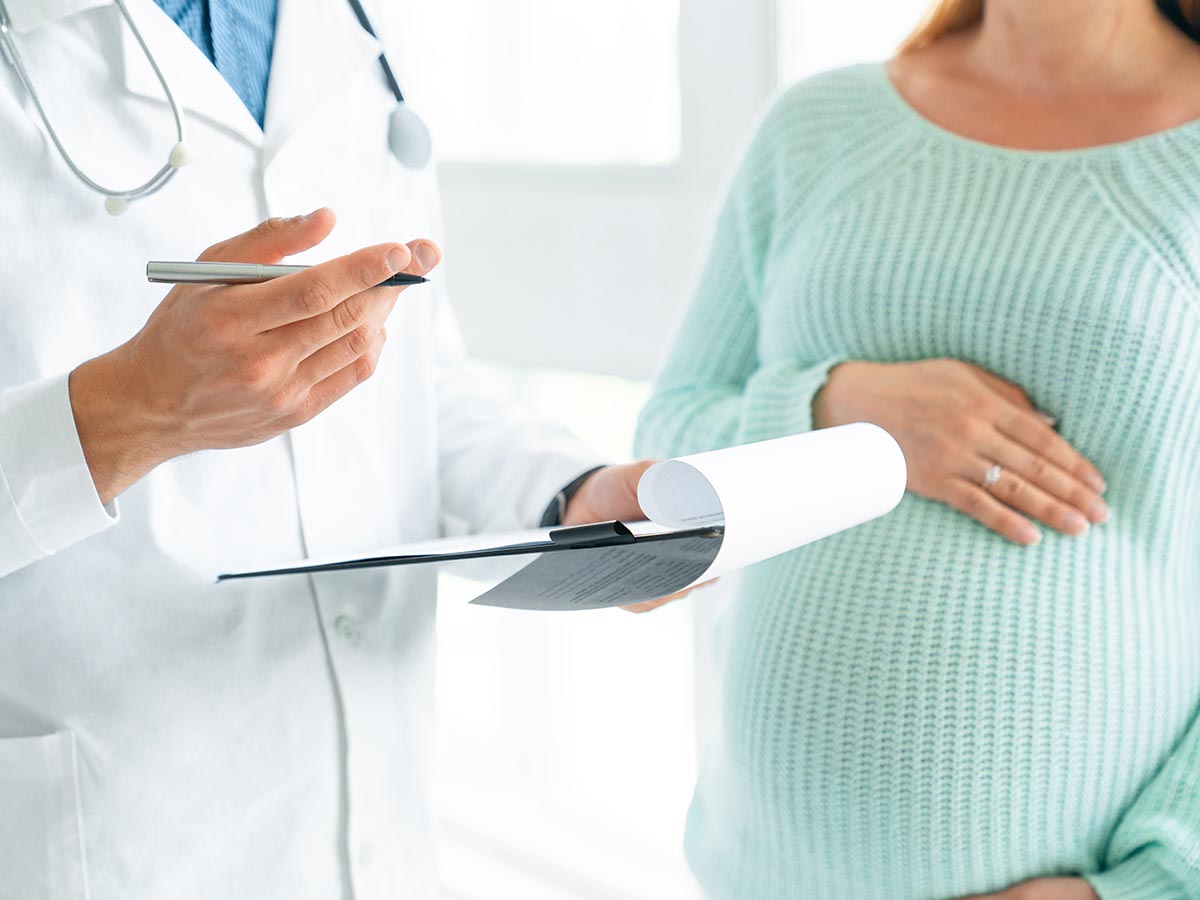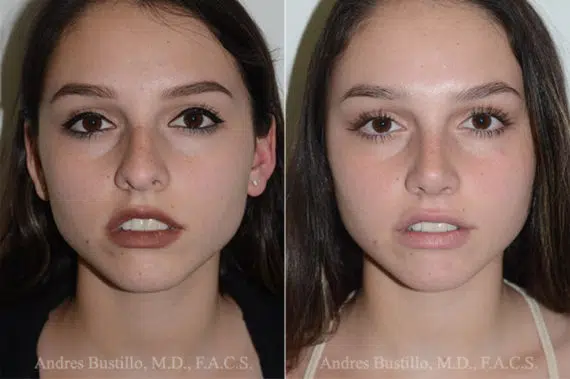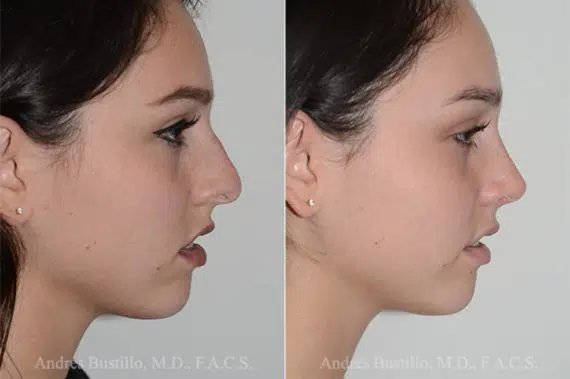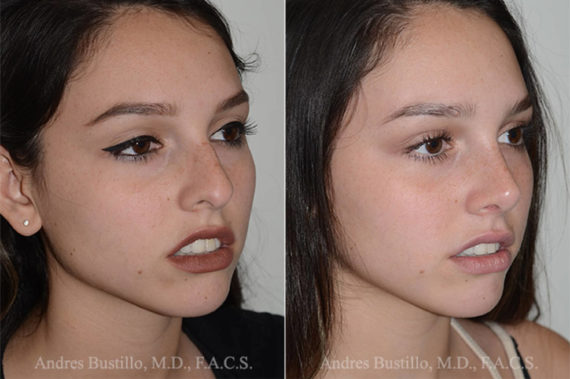Ever looked in the mirror during pregnancy and wondered if it was finally time to fix that bump on your nose? With all the physical and emotional changes happening, it’s normal to start thinking about ways to feel more confident in your skin, including cosmetic procedures like rhinoplasty.
While the idea might seem tempting, especially with time off work or fewer social commitments, getting a nose job while pregnant is far more complex than it seems. In fact, there are several compelling reasons why most surgeons strongly advise against it. Let’s explore why waiting is the safer and smarter choice.

Can You Get a Nose Job While Pregnant?
In general, it is not recommended to undergo a nose job, or any elective surgery, while pregnant. Pregnancy puts significant physical demands on the body, and adding the stress of surgery and anesthesia can increase potential risks. The recovery process also draws on the body’s energy and resources, which are already fully engaged in supporting a healthy pregnancy. Beyond that, there are concerns related to medication safety, changes in hormone levels, and the potential for unforeseen complications. These and other reasons, which we’ll discuss below, highlight why it’s best to wait until after delivery.
What Are the Risks of Having a Rhinoplasty During Pregnancy?
Undergoing rhinoplasty during pregnancy introduces a variety of health concerns for both mother and baby. Beyond the physical toll, nasal congestion, hormonal changes, body shape fluctuations, and the potential for complications can compromise both the safety of the procedure and the results. Below, we break down the most pressing risks and considerations.
Effects on Breastfeeding
While nose surgery itself doesn’t directly impact breast milk production, the medications used during and after the procedure can be a concern. Anesthesia, painkillers, and antibiotics may transfer into breast milk, potentially affecting the nursing baby. Since the safety of many of these drugs during breastfeeding is not well-established, avoiding elective surgery during this time helps eliminate unnecessary risks to your infant’s health.
Hormonal Changes
Pregnancy triggers significant hormonal fluctuations, which can interfere with the body’s normal healing processes. Elevated hormone levels may increase inflammation, delay wound healing, and heighten the risk of infection after surgery. Swelling may also be more pronounced and persistent, which could distort the final results of a rhinoplasty. Combined, these issues make it more difficult to achieve optimal surgical outcomes and a smooth recovery.
Body Shape Changes
Pregnancy leads to noticeable changes in body shape, including swelling, weight gain, and fluid retention. These shifts can alter facial features, including the nose, which may temporarily appear wider or puffier. Performing rhinoplasty during this time can yield unpredictable results, as the surgical outcome might be affected by ongoing physical changes. For the most accurate and lasting results, it’s best to wait until your body has fully returned to its pre-pregnancy state.
Increased Risk to the Baby
Pregnancy naturally alters a woman’s physiology, making any type of surgery more complex and potentially hazardous. Anesthesia and medications commonly used during rhinoplasty can cross the placenta and may affect fetal development. Even if the risks are relatively low, there is no way to guarantee total safety for the unborn child during a cosmetic surgery. For this reason, most cosmetic surgeons and expectant mothers opt to avoid non-essential surgeries until after childbirth, when both mother and baby are no longer exposed to preventable risks.
How Long After Rhinoplasty Can I Get Pregnant?
Most medical professionals recommend waiting at least 6 to 12 months after rhinoplasty before becoming pregnant. This timeframe allows your body to fully heal and ensures the nasal tissues have settled into their final shape. Pregnancy can affect the entire body, including facial features, due to hormonal and fluid changes. Getting pregnant too soon after surgery may interfere with healing and alter your final results. To protect both your health and your surgical outcome, it’s wise to give your body the time it needs to recover completely before planning a pregnancy.
Get the Most Out of Your Plastic Surgery Procedure
If you’re considering a rhinoplasty procedure and thinking about pregnancy in the near or distant future, timing and planning can make a big difference. One way to maximize the advantages of surgery is to combine procedures when appropriate—either before pregnancy or well after childbirth.
Before pregnancy, it’s common to bundle rhinoplasty with other facial enhancements such as a facelift, fat grafting, or Botox. This approach not only helps achieve a more harmonious look but also saves on anesthesia, surgical facility fees, and recovery time—all of which can be costly in terms of both time and money.
After pregnancy, and once you’re confident you’re not planning on having any future pregnancies, a mommy makeover can be an excellent follow-up. This often includes procedures like liposuction, tummy tuck, and breast augmentation, tailored to each patient’s post-pregnancy goals.

Tips for a Successful Pregnancy and Rhinoplasty Journey
Before combining a life-changing surgery with a life-changing event like pregnancy, it’s essential to set yourself up for the best possible outcomes. Below are some smart strategies to help you balance both goals with confidence.
Plan Your Cosmetic Procedure
Good planning is key to a smooth recovery—both from rhinoplasty and from pregnancy. Be sure to arrange for support from your partner, family, or close friends during your healing period. Whether it’s help with daily tasks or just having someone available to drive you to follow-up appointments, a dependable support system can make a big difference. Stock your home with essentials ahead of time, prepare easy meals, and organize childcare if needed. Recovery from surgery, like motherhood, is not something you want to go through alone.
Avoid Smoking
Avoiding smoking during pregnancy is a well-known rule, but it’s just as critical before and after rhinoplasty. Nicotine can restrict blood flow, delay healing, and increase the risk of complications from surgery. It also harms the developing fetus and can be passed to the baby through breast milk. The same goes for alcohol, which can interfere with both fetal development and post-op recovery. Whether you’re planning surgery, pregnancy, or both, steering clear of these substances is one of the best things you can do for your health and your results.
Get Plenty of Rest
Rest is one of the most powerful tools you have for healing, both after surgery and during pregnancy. Your body works overtime in both scenarios, so giving it adequate time to recover is essential. Avoid overexerting yourself, especially in the first few weeks post-op, and prioritize quality sleep and short naps throughout the day. A restful environment, along with light movement and hydration, can speed up recovery and reduce complications. The better you rest, the better your body can focus on healing.
Eat a Balanced Diet
Fueling your body with the right nutrients is crucial for healing after rhinoplasty and supporting a healthy pregnancy. A diet rich in lean proteins, fresh vegetables, whole grains, and healthy fats helps speed recovery, reduces inflammation, and strengthens your immune system. During pregnancy, your nutritional needs increase even more, so prioritizing a balanced diet benefits both you and your baby. Staying hydrated and avoiding processed foods can also improve skin quality and overall wellness, important for both your appearance and long-term health.
Consider Non-surgical Options
If your aesthetic concerns are minor or temporary, liquid rhinoplasty might be a smart alternative. This nonsurgical approach uses dermal fillers to subtly reshape the nose without downtime or major risk. While it’s generally advised to avoid dermal fillers during pregnancy due to limited safety data, planning the procedure well before conceiving or after giving birth can offer satisfying results with minimal disruption. Rhinoplasty with fillers is especially helpful if you want a short-term enhancement for a specific event. The effects wear off in a few months, giving you time to focus on your growing family before considering a more permanent solution.
Follow Post-op Care Instructions
Your doctor’s post-operative instructions are there for a reason—following them carefully can significantly influence your healing and final results. Adhering to guidelines around medication, activity level, hygiene, and follow-up appointments helps reduce the risk of complications and promotes a smoother recovery. Maintain open communication with your surgeon throughout the healing process. Whether you have questions, experience unusual symptoms, or just need reassurance, having a reliable way to reach your provider ensures you’re never navigating recovery alone.
Questions about your procedure?
Schedule a consultation with Dr. Andres Bustillo.
Choosing the Right Plastic Surgeon for Your Rhinoplasty
Rhinoplasty is a delicate and highly specialized surgical procedure. Choosing an experienced plastic surgeon, an expert in the nuances of the nasal structure, ensures that your safety, results, and long-term satisfaction are prioritized, especially if you’re also planning for or recovering from pregnancy. A seasoned expert will know how to navigate your unique timeline and health needs while minimizing risks.
Dr. Andres Bustillo, a board-certified facial plastic surgeon in Miami, brings over 20 years of expertise to every procedure. With advanced training from the prestigious NYU-Weill Cornell Fellowship Program and numerous published works on facial aesthetics, Dr. Bustillo combines technical precision with an artist’s eye. To learn more or to schedule your personalized consultation, call us today at 305-663-3380 or visit our contact page.





